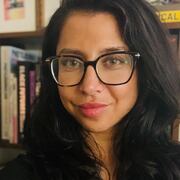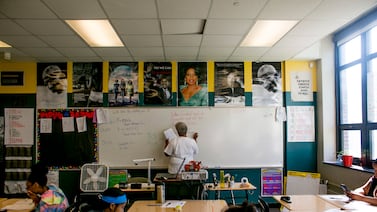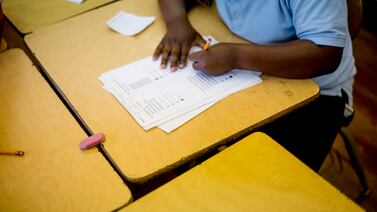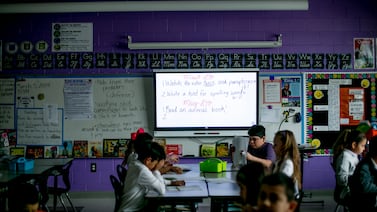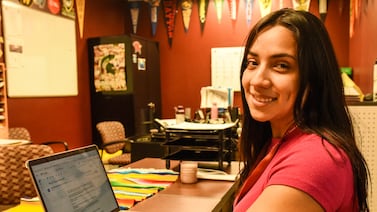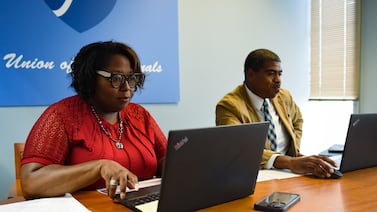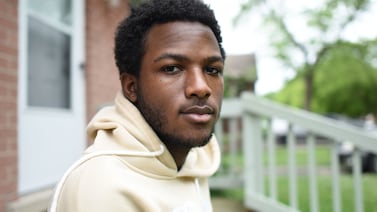Proposal S is a millage that would provide additional revenue to pay off longstanding debt.
On Michigan’s standardized tests, Detroit charter students show some gains in comparison to previous years. But they’re still struggling to return to pre-pandemic numbers.
Overall school attendance is improving, but children with disabilities and those from low-income families aren’t rebounding as well as their peers, the state reports.
Every school in the Detroit district should soon have laundry facilities. Here’s why that could make a dent in chronic absenteeism.
Small gains in M-STEP performance signal significant progress for DPSCD.
The move comes after Chalkbeat Detroit highlighted some of the company’s problems serving students in other districts.
Milliken v. Bradley reversed the nation’s course on addressing segregation in schools. Detroit classrooms continue to grapple with lasting effects.
Alicia Alvarez helps students at Western International High School in southwest Detroit to envision, and obtain, a path to higher education. But there’s no shortage of obstacles standing in the way.
Union leaders say the new contract sets Detroit apart from other districts, with terms that will attract new teachers and retain existing ones.
Through history, art, culture, and conversation, students get the support that queer youth before them didn't have.

